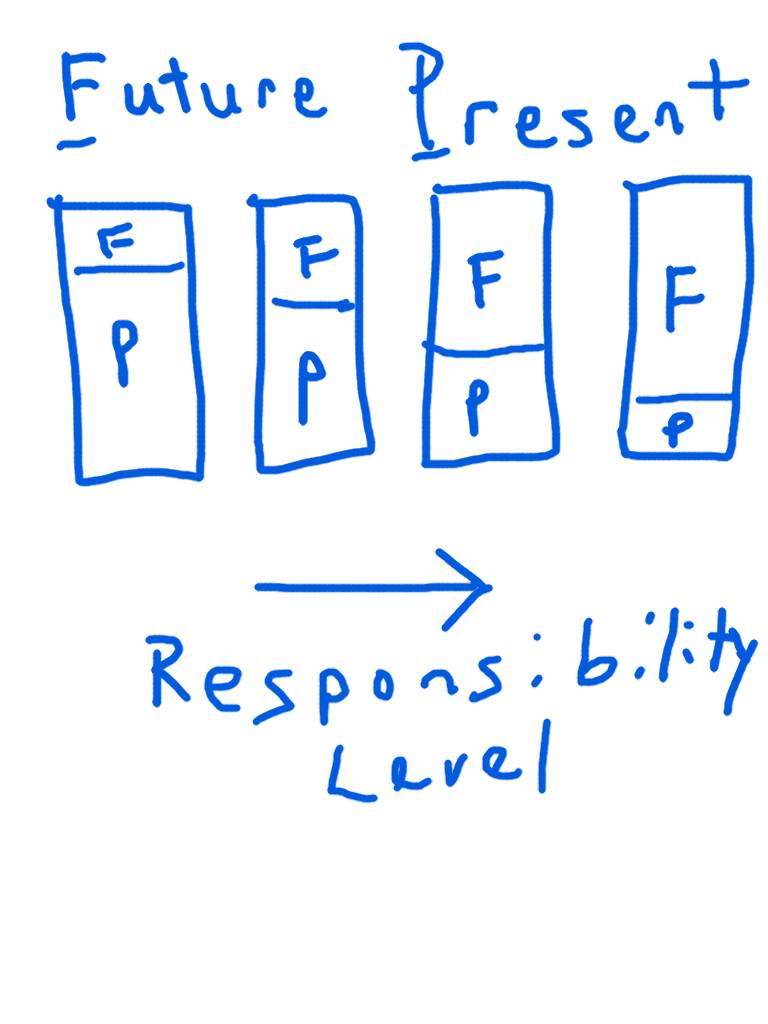
The larger role of responsibility or the higher position you hold in an organization, the more you must discipline and free yourself for future-tense thinking.
I remember explaining this concept to a senior pastor. His church had stalled. As I learned more about the church, it wasn’t surprising to me. They were doing things the same way they’ve done them for many years. Nothing had changed. The pastor was busy – some would say too busy – but, in my observation, while he was working hard, he was not working smart.
The real problem? From my perspective this leader was so caught up in putting out current fires, he didn’t have time – or hadn’t taken time – to plan for new and better fire extinguishers. He was not thinking “What’s next?” for the church. He was drowning in present-tense issues. And, because no one else with think future-tense if the leader doesn’t, nothing is being planned to be done differently in the future. More of the same will never produce change.
I took a minute to draw the diagram above on a dry erase board. The four quadrants represent the amount of time given to either future-tense or present-tense thinking. The ratios aren’t important, but what is important is understanding the concept. Notice the amount given to future-tense gets larger as the level of responsibility increases. The more the organization looks to you for leadership, the more you must be thinking future-tense.
Think of it this way. The now when you started reading this post is now the then. If you aren’t thinking forward, you’re always thinking behind.
Some will ask in this diagram about “past thinking”. It is important to consider where the organization has been, but thinking about the past should be part of reviewing for improvement and growth in the future. I review our history continually, but only so we can celebrate and build from it towards a brighter future.
Have you seen an organization stall because the leader stalls?
If this is your situations, let me suggest you read 7 Ways I Keep Looking Forward as a Leader.






 Logging you in...
Logging you in...
 Loading IntenseDebate Comments...
Loading IntenseDebate Comments...
Thanks for reposting this, Ron!
I think you captured the necessary balance between Future Thinking and remembering the past.
According to StrengthsFinder, two of my strengths are Strategic (future thinking) and Context (thinking about the past). Unlike many leaders I know, I don't find these dimensions contradictory at all.
I think successful churches, like all successful endeavors, need to embrace their history, warts and all. Remembering the great accomplishments both lends courage for today and reminds us and reinforces in us the whole reason we do what we do. Properly viewed, remembered, and evaluated, the past can be a dynamic springboard to a wildly successful future.
I think it's a matter of your mindset.
Some people think of the past and get stuck in the amber trap of the good old days. And they seem somehow older. Even bitter.
Some people remember the exploits of their past and become young again. Re-energized. Ready for a better-than-ever future.
And ready to embrace new ways of thinking and doing. Some of which, by the way, are simply the old ways in a new wrapper!
That is an interesting combination in your StrengthsFinder. I can see how that would serve you well.
"Everything rises and falls on leadership," says Maxwell. This applies true in the case of future thinking also. When the leader stumbles, the organization follows the leader subsequently.
Absolutely. Love Maxwell.
Thanks Ron! Great insight!
Fantastic visual, Ron!
I have "known" this for years, but have never seen it so simply illustrated. This truly clicked with me!
Thank you for your wisdom!
Thanks. I often have to see something in writing before it becomes clear to me. I doodle all the time.